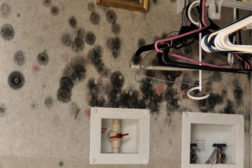ARTICLES
Toxic Mold Litigation: 2013 Update (Part II)
Science is, oddly enough, not always an exact science. And science changes over time
Read More
Toxic Mold Litigation: 2013 Update (Part I)
Mold lawsuits remain plentiful and large recoveries still occur, although they have not wielded the devastation to the restoration industry that many had feared
Read More
Making Mortgage Companies Work With You (And Beating the Money Out of Them if They Don’t)
No matter your relationship with the homeowner, the adjuster or the insurance company, your relationship with the mortgage company is likely to be a competition of adverse interests
Read More
Get our new eMagazine delivered to your inbox every month.
Stay in the know on the latest disaster restoration and remediation trends.
SUBSCRIBE TODAY!Copyright ©2022. All Rights Reserved BNP Media.
Design, CMS, Hosting & Web Development :: ePublishing




